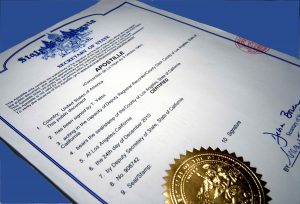Political translation has its own specifics in the translation services market. Here the translator must be very accurate and politically correct in order to avoid irreparable mistakes and incompetent oversights. Any official document should not only convey the essence of what has been stated, but also maintain the correct wording, because any careless word can lead to an international scandal.
The personal opinion of a political translator does not matter
When working on a docu

ment, the translator must be impartial – he leaves his ambitions, opinions and thoughts about what he has written for himself. Everything that the translator thinks about the information in the document, he will then tell his family at home, if, of course, he has the right to do so. Here are some more important qualities that a political translator should have:
professionalism;
patience;
experience with similar texts;
knowledge of certain terms.
The organization and pace of the translator’s work can play a very important role, because a document is not a work of fiction, which only in rare cases is capable of influencing any event. Delaying translation can lead to the fact that the political text will lose its significance or harm some individuals, structures or the state. The criterion of urgency plays an important role in such documents, because the fate of peoples may depend on the understanding of the text of the resolution or the terms of the agreement.
Political documents – texts of increased complexity
Not every translator can be trusted to translate statements, resolutions, contracts and decrees. Working with such texts has its own specifics:
highly specialized terms requiring knowledge of accurate translation;
there are voluminous documents of dozens of pages that require urgent translation;
when translating, you need to preserve the style of the original, clarity and logical transitions;
knowledge of the translator is required both in political issues and in other related areas;
knowledge of history is a distinctive quality of a translator.
To translate many documents, only knowledge of a foreign language is required. As far as politics is concerned, there can be a very thin line here, which categorically cannot be crossed. That is why translators are so appreciated who not only know the history of their country, but also understand what important events have taken place and are happening in different states.
Under no circumstances should one word be allowed to change the essence of the document or jeopardize a serious international agreement. The translator of political texts is also a subtle psychologist and an excellent diplomat, an excellent philologist and a competent politician.
Ability to analyze and filter out political rubbish

In recent years, even those who previously did not want to talk about it have become interested in politics. Serious events taking place in the world are of concern to every second inhabitant of the planet. Every minute in the vast world, important events take place that need to be analyzed, removed unnecessary husk and illuminated correctly.
The main thing for a translator is to work quickly and accurately, without distorting the ongoing processes. The main emphasis should be placed on an objective assessment and an unbiased attitude towards events. Only in this case everything stated will be true and reliable.
A professional works only excellently
A political translator will be able to translate any document, even of increased complexity:
press releases and articles;
interviews and statements;
official programs and communiqués;
speeches and minutes;
laws and agreements.
Since the political style is more similar to the artistic one due to the frequent use of phraseological units, the translator must clearly understand the task and avoid mistakes in sense and style. There are often phrases that are difficult to translate without sufficient experience: “political games”, “soft power”, “dark horse”. Literal translation should be avoided in them, since the meaning in this case will be completely distorted. The translator of political texts has no right to make a mistake – once having made a mistake, it will be almost impossible to return to this job.
The more changes occur in politics, the more difficult it is for the translator: new phrases, statements, lexical innovations appear. Only a true professional knows how to quickly rebuild in order to be back on track and engage in political translations.

